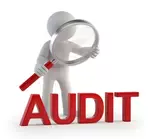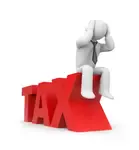- Essential Bookkeeping Habits For Audit Ready Books in Canada
- Basics of PST in BC
- Register for PST in BC
How to Register for PST in BC
A Guide for Small Business Owners
By L.Kenway BComm CPB Retired
This is the year you get all your ducks in a row! Start by starting.
Edited May 13, 2024 | Published April 11, 2024
WHAT'S IN THIS ARTICLE
Table of Contents | Introduction |Daily Tax Planning | Steps to Register | Conclusion
NEXT IN PST SERIES >> Guide to PST Rates in BC
PST isn't just a tax—it's a key part of your daily business routine and overall tax planning strategy. This article aims to provide a guide on how to register your business for PST in BC so you have a smooth registration process.
 Look at you with all your ducks in a row! Feels good to be in control of your business's tax compliance obligations. Check register for PST in BC off your list.
Look at you with all your ducks in a row! Feels good to be in control of your business's tax compliance obligations. Check register for PST in BC off your list.Canadian Sales Tax Guide
PST in BC Articles - Table of Contents
Articles on PST in British Columbia when you are ready.
Introduction
It is essential for small business owners and bookkeepers in British Columbia (BC), Canada, to understand the Provincial Sales Tax (PST) system. It's different than the GST HST system.
PST isn't just a tax—it's a key part of your daily business routine and overall tax planning strategy. Being consistent in your commitment to meet PST (and GST) regulations can significantly influence your business’s financial position and future growth.
This article aims to provide a guide on how to register your business for PST in BC so you have a smooth registration process.
Tax planning happens EVERY day throughout the year ...
Good compliance practices don't happen on any one particular day.
They aren't an event; they are a HABIT.
By taking the time to learn and know the rules ...
YOU can do all the little things needed to LEGALLY reduce your net taxable income.
Remember you are aiming for consistency not perfection.
How To Register For PST in BC
Step-By-Step Registration Guide
Step 1: Determine If You Need to Register for PST in BC
Step 1: Determine If You Need to Register for PST in BC
Not all businesses need to register for PST. If your business sells or provides goods, software, or services that are taxable, or if you lease taxable goods, then it's necessary to register your business for PST.
In British Columbia, you generally need to register for a PST account if you sell or lease taxable goods in BC, sell accommodation in BC, or provide legal services, online marketplace services, related services (services to taxable good or to install taxable goods), software or telecommunication services in the province. This includes:
1. Retailers or wholesalers who also sell to end consumers.
2. Manufacturers who make retail sales.
3. Leasing companies
4. Individuals or businesses located outside B.C. who sell goods or services to customers in B.C.
5. Businesses located in B.C. but make sales to customers outside B.C.
6. Businesses who operate in more than one province.
Bulletin PST 001 has an exhaustive list of businesses required to register.
Registration exceptions exist for small sellers, defined as businesses that sell $10,000 or less in total gross revenue per year across Canada, and not only in B.C.
Anyone who doesn’t meet the criteria for mandatory registration can register voluntarily if they regularly sell goods or services in B.C. Registration allows them to manage and remit their PST payments more efficiently. It also shows that they are compliant with tax laws, improving their reputation among customers and suppliers.
Businesses that only make exempt sales or only sell goods or services outside B.C. do not need to register for PST. Also, businesses that exclusively make wholesale sales and are not end consumers don’t need to register unless they sell specific types of goods such as liquor or tobacco.
Step 2: Obtain a BCeID
Step 2: Obtain a BCeID
Before you can register for PST in BC, you need a BCeID, a government-issued online identification account. You can apply for a basic BCeID online at the BCeID website. Choose the "Register for a Business BCeID" link. It will take about 15 minutes to complete the registration. Here is what to expect during registration:
1 - You'll be making some confirmations and selecting your business type.
2 - You'll be asked to provide your business contact information.
3 - You'll be asked to choose your BCeID user ID and password.
4 - You'll be asked to provide your business information.
- You will need to prove the identity of your business. You have four options to do this: (a) your online registration with BC Registries; (b) using an activation code mailed to you; (c) with assistance from BCeID; or (d) in person at a BCeID point of service location.
- My preference is (a) BC Business Registry. It's easy to do a business search and name request then register the name of your business including DBA (doing business as - for sole proprietors) registrations. This help you solidify that you are a duck!
5 - You will need to Accept the Terms of Use (it's just part of online life) and Business Registration Agreement to complete the process.
Step 3: Prepare Necessary Information
Step 3: Prepare Necessary Information
You need the following details for the online registration:
- CRA Business Number (BN) - If you don't have one, you can get it through OneStop Business Registry or CRA's Business Registration Online (BRO) portal
- Operating name of your business - see discussion on BC Business Registry in step 2.
- Full legal name, telephone number and Social Insurance Number (SIN) for all business owners or officers
- Addresses of all locations where your business will engage in business activities in BC
Step 4: Register for Your PST Account
Step 4: Register for Your PST Account
Once you have your BCeID and you've gathered the information outlined in step 3, you can log in to the eTaxBC website to register for your PST account.
- Select "enrol for access to eTaxBC" then "Create a New Enrolment". Answer the questions then at the end of the "interview", submit the online form.
- During the registration, you will need to validate your identity. It's been a while since I've done this but I expect it will be similar to proving your identity when registering for BCeID.
Step 5: Complete the Registration
Step 5: Complete the Registration
After filling in all the required details, submit the form. Afterward, you will be sent a confirmation number immediately. You should receive an access code with 2 minutes but sometimes it can take as long as 30 minutes.
Key Takeaway: Keep your Provincial Sales Tax (PST) number, user ID and online password safe, as you will need it for future PST transactions and when filing PST returns.
Step 6: After Registration Obligations
Step 6: After Registration Obligations
Once you register for PST in BC, a small business owner is obligated to:
1. Charge and Collect PST: The business must start charging and collecting PST (Provincial Sales Tax) on taxable goods and services according to the prevailing rates.
2. Record Keeping: A business owner must keep detailed and accurate records of all transactions. These records should prove the amount of PST charged, collected, and paid.
3. Regular PST Returns: A business must file PST returns regularly even if no PST was collected during that period. The frequency of filing will either be monthly, quarterly, semi-annually, or annually depending on the business type.
4. Payment of Collected PST: The business owner must remit the collected PST to the government by the due date mentioned on the PST return.
- - - - - INCENTIVE TO REPORT AND PAY ON TIME - - - - -
To acknowledge the administrative burden of collecting, reporting and remitting PST, the Government pays you a commission of up to $198 per reporting period. The amount of commission you are entitled to calculated on your PST return. But you only qualify to receive it if you have filed and remitted on time.
If you have more than one PST account, you can only claim the commission on one account. There is no commission for MRDT (Municipal and Regional District Tax) and it must be reported separately from the PST return.
Source: BC Government Website Reporting and Paying PST
- - - - - - - - - - - - - - - - - - - - - - - -
5. Notification of Changes: The business is required to notify the Ministry of Finance if any changes occur in the business. This includes changes like change of address, change of business activities, business closure, etc.
6. Compliance with Audits: Businesses may be subject to audits and must therefore maintain and provide all necessary records and documents.
Remember, failure to fulfill these obligations could result in penalties. It's always wise for businesses to reach out to the BC Ministry of Finance or a professional tax consultant for advice on their PST obligations.
MORE >> How to Register for GST HST in Canada
Conclusion
 Get in the habit of making one administrative commitment a day and keep it! Getting all your ducks in a row just feels good.
Get in the habit of making one administrative commitment a day and keep it! Getting all your ducks in a row just feels good.To register for PST in BC involves determining your eligibility, obtaining a BCeID, registering your business, preparing necessary info, and completing the registration.
PST is a critical aspect of doing business in British Columbia as it is a tax levied on retail sales or leases of tangible property and certain services. Compliance with your PST obligations and building good financial routines is not just a legal requirement but a foundation for your business to be successful.











